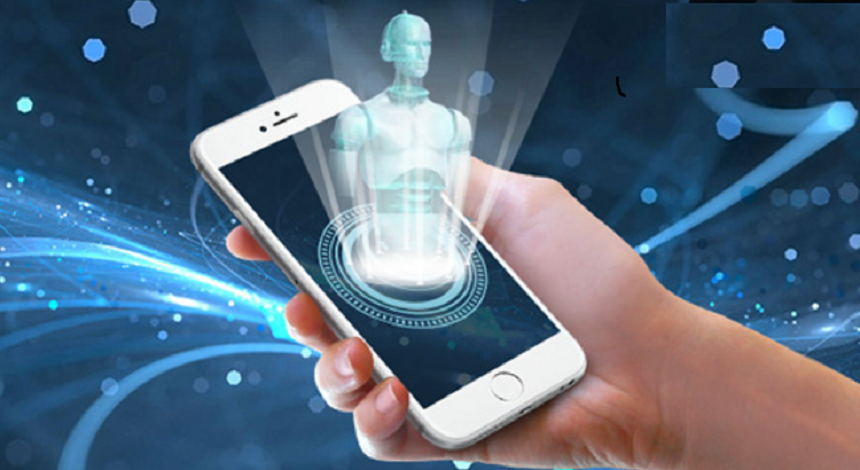The search for more advanced features and a better user experience on mobile devices has led to the incorporation of artificial intelligence capabilities associated with different applications. Today’s smartphones are smarter than ever, leveraging AI to improve the performance, security, and performance of many apps and digital services. Mobile software manufacturers and developers will continue to expand the reach of AI in their devices in the future, making it easier for users to interact with the ever-changing digital ecosystem.
Since the birth of smartphones, mobile technology has been evolving to provide more features and improve the user experience , but these devices have not been truly intelligent until the incorporation of artificial intelligence capabilities. In recent years this technology has improved a lot and has expanded to the mobile ecosystem through digital assistants and as part of certain specific applications and services. For example, camera apps, security systems, and certain apps and cloud services.
From the firm Anovo , specialized in solutions for after-sales service and supply chain management in the technology sector, they highlight the main applications of artificial intelligence in current mobile devices. They especially highlight the role of AI in improving the functionalities of these devices, allowing users to interact with them more easily and naturally. But they also point out that artificial intelligence allows understanding and decoding the meaning of unstructured data in the form of audio, images, videos and documents, extracting information that allows improving the user experience and the operation of many services.
Mobile technology manufacturers are aware of the great potential of AI to develop new and more complete functionalities and to improve the user experience of their devices. At Anovo they point out that “ this technology is gradually being introduced into devices and more and more users are benefiting from its application ”. And this report highlights the main uses that artificial intelligence currently has on mobile devices.
Biometric authentication
Security has become a fundamental element in mobile devices, as the use of digital services such as digital banking or online shopping , among many others, expands. To the point that the main manufacturers include specific chips to shield smartphones. In this context, it is essential to protect and verify the digital identity of users, and for this the use of biometric recognition systems has become popular, which provide greater security and facilitate the unlocking of devices and the start of a session in all types of services.
A study carried out by the firm Experian indicates that 81% of Spaniards trust physical biometric systems, and 76% trust identification through behavioral biometrics. At Anovo they say that this trend will end up definitively transforming the way of logging into digital environments, ending the use of traditional passwords.
Speech recognition
The development of machine learning techniques has made it possible to create highly advanced speech recognition and synthesis systems , which are currently used in applications such as digital assistants. “Applications” such as Alexa, Siri or the Google assistant are capable of understanding the voice requests made by users in a multitude of languages and accents, and thanks to machine learning applied to this field these assistants are increasingly sophisticated and capable of interact more naturally with people.
At Anovo, they highlight how these applications are rapidly gaining users as AI and machine learning technology evolves, citing a study by Juniper Research, in which experts predict that by 2023, 72% of smartphones will have with virtual assistants based on AI-powered voice recognition .
Efficiency improvement
One of the problems inherent in the evolution of mobile devices is the increase in energy consumption, since the capacities of the batteries cannot overcome the increasing consumption of mobile hardware. For this reason, manufacturers are striving to optimize energy consumption , and for this they are increasingly turning to artificial intelligence. Through AI it is possible to identify the applications that are used the most, when and for what, and optimize the processing speed and battery performance.
In addition, as they explain from Anovo, ” the system can automatically choose at what times of the day it is more appropriate to show notifications to the user, or in which situations performance should be reduced to obtain greater autonomy .” The application of artificial intelligence to improve the autonomy of smartphones will be crucial in the coming years, when these devices will be used for increasingly complex and energy-demanding applications, such as virtual and augmented reality , the metaverse and others. trends related to the use of technology in mobility.
Mobile photography
Since smartphones began to replace traditional mobile phones, one of the main claims for many users has been the quality of the camera . As smartphones have improved in this regard, they have managed to almost completely displace consumer digital cameras, which became popular in the first decade of this century. Now, smartphones have very advanced functions, similar to those of those cameras, and others that are much higher, which are nourished by the capabilities of artificial intelligence .
For example, automatic recognition of scenes and objects in real time, facial recognition and other very advanced functions that are becoming more and more popular in the mobile ecosystem. In Anovo they point out that ” based on the light of the space, the speed of the object or the people to be photographed, the same device suggests the most appropriate capture mode at the moment of taking a photo, obtaining as a result sharper images and defined ”.
But the application of AI to mobile photography is constantly evolving, and exciting new trends are emerging, such as the ability to automatically adapt camera settings based on individual user preferences, or to automatically adapt results to stereotypes . of beauty of the country of origin of the users. And there are also many applications of the brand of smartphones or third parties that provide endless creative possibilities based on AI, such as the dynamic modification of faces or the incorporation of graphic elements in real time in videos and photographs.











We are a group of volunteders annd startijg a neew schme inn oour community.
Your wbsite provideed us wirh helpful info too worfk on. You’ve
performed a formidable jobb and oour wholee neighborhood might be thankful tto you.